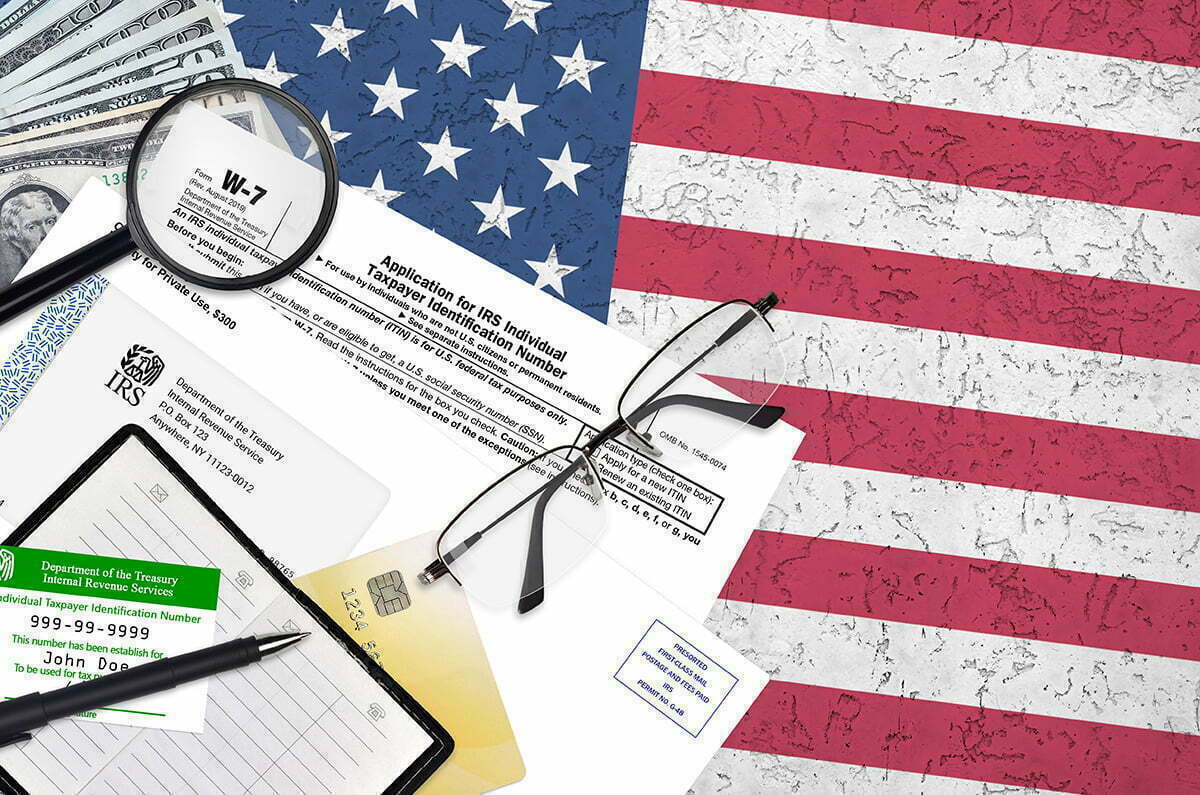Home /
Tax liens from the IRS can be stressful if you don’t know what to do. Here are some tips that can help.
First off, a tax lien is, “a claim against property that the government uses to protect its interests in tax debt,” according to The US Tax Center at IRS. The IRS will do this if the owed amount is not paid for after they send a notice.
If, according to Tax Debt Help, “no payment is made within 10 days of the demand the IRS can send out a notice of federal tax lien.”
The IRS will then file a Notice of Federal Tax Lien as a public record document; it will be placed on credit records to limit the ability to apply for more credit until the previous debts are paid.
One of the main reasons a lien is placed is because taxpayers do not pay their income taxes; debts as high as $10,000 or lower can be cause for a tax lien from the IRS.
Tax Debt Help states, “There can be various reasons as to why taxes were not paid, but when the IRS finds a taxpayer that they feel may be trying to not pay their taxes they will place a lien to ensure they will get payment of the taxes they owe.”
Did you receive a lien?
If you receive a tax lien, you are encouraged not to ignore it; prolonging the process will hurt you more in the future. Call the IRS immediately to try to resolve the situation.
The IRS lists paying off the tax debt as the best way to remove the lien, and will remove it within 30 days after the debt is paid.
The IRS says, “When conditions are in the best interest of both the government and the taxpayer, other options for reducing the impact of a lien exist.”
A lien affects you in different ways; the lien attaches to everything, including the following:
- Assets: all assets are affected when a lien is in place, including all future assets. This also includes tangible assets and intangible assets.
- Bankruptcy: even if you file for bankruptcy, the lien will still be attached, so filing doesn’t solve this problem.
- Business: accounts receivable, including all business property and rights to that property is also affected.
- Credit: your credit is affected because it limits your ability to get more, as the lien is placed on your record.
Also, note that a lien is not a levy. The difference between a lien and a levy is that the IRS will seize property (they can also take money from bank accounts or garnish wages) to pay for the debt, whereas the lien is a notice that you have not paid the debt off, that affects all assets and credit records.
If there is a tax lien on your home then, the IRS states, “you must satisfy the lien before you can sell or refinance your home,” but do not despair, there are options to satisfy the lien.
If you have equity in your property, the lien is paid depending on the equity, so it may be paid partially, or the entire lien will be paid off from the sales proceeds.
IRS Solutions
In 2011, the IRS announced that they are making efforts to help struggling taxpayers make the lien process easier including:
- “Creating easier access to Installment Agreements for more struggling small businesses.
- Expanding a streamlined Offer in Compromise program to cover more taxpayers.”
The IRS also states if the amount of the lien is less than what the house sold for, then you may request that the IRS to “discharge the lien to allow for the completion of the sale.”
If you want to refinance or restructure a mortgage, you can ask the IRS to make the federal tax lien secondary to the “lending institution’s lien.” The IRS is working to speed up the process for this request.
Because the IRS tries to work with the taxpayer, so the debts are paid, they can also change the debt amount to work with inflation.
The IRS is trying to help the taxpayer as much as possible, including making changes if you enter a Direct Debit Installment Agreement (DDIA), and “will make it easier for taxpayers to obtain lien withdrawals. Liens will now be withdrawn once full payment of taxes is made if the taxpayer requests it.”
Tax Debt Help says, “those who owe less than $25k and setup a direct debit installment agreement, can have the tax lien withdrawn (removed from public records) after demonstrating a successful payment history.”
Withdrawals are used to make sure the IRS does not compete with other creditors for the property. This is done by removing the public Notice of Federal Tax Lien.
If you qualify under certain Internal Revenue Code provisions, then there is an option to request a Certificate of Discharge– this removes the lien from specific property.
Also, the IRS has the ability to make sure other debtors to a particular property are paid first.
For example, if the lien is placed on a house, then the bank also has a lien on the debt. If the bank does not receive all of the money they need, the IRS can make sure the bank is paid first, and the IRS will take the remainder of the proceeds.
Filing an Appeal for a Federal Tax Lien
If you want to file an appeal for the lien, you are given the option when you receive the notice. In this notice, it is requested of the IRS to file the appeal within 30 days of the fifth day the lien was filed.
Tax Debt Help lists the following reasons you may file an appeal. If any of these circumstances apply to you, you are encouraged to file an appeal.
- Taxes were paid in full prior to the lien being filed
- There was an error made in the process of the lien being filed
- You were going through bankruptcy when the lien was filed, and taxes were subject to the automatic stay
- The statute of limitations has expired on the taxes that are owed before the lien was filed
- You were never given the opportunity to dispute the amount that was assessed by the IRS
- The tax lien was filed in error and the IRS made a processing error when processing your return
- You wish to make spousal defenses by claiming that your spouse should be liable for the taxes owed
- You want to discuss the different collection options (i.e. offer in compromise or an installment agreement)
Tax Debt Help states, “In order to appeal, you must ask an IRS manager to review your case or request a Collection Due Process hearing with the office of appeals.”
You can also call the number on your notice and speak to an IRS employee, and it is possible to have it appealed; however, if this does not work, then you can still work with the office of appeals.
To file a request for a hearing with the IRS, “you must complete IRS form 12153, Request for a Collection Due Process (CDP) or Equivalent Hearing, or with a written request that contains the same information as form 12153 and send it to the address that is listed on the notice of federal tax lien.” In this request, it is recommended to state the alternatives to the lien and explain your reasons why you don’t agree with the lien. Some of the following reasons are provided by Tax Debt Help:
- You will enter into other collection alternatives such as an installment agreement or settle taxes through an offer in compromise
- Spousal defenses. You can claim that your spouse is liable for the taxes owed and file for innocent spouse relief if you meet those specific requirements
- You acknowledge there is an amount due, but you never received the opportunity to dispute the tax liability
- Subordination or discharge of lien
- Withdrawal of Notice of Federal Tax Lien
If you win the appeal, then the lien will be released, but it is likely the lien will stay on your credit report. It is important to contact the three major credit bureaus, and make sure the lien is removed.
There are a number of people that can represent you in the process of appealing a tax lien including a tax attorney, a certified public accountant, yourself, a member of your immediate family, and a low-income tax clinic (if you qualify for this representation).
Although you have the option of representing yourself, it is suggested to hire a trained tax professional to help you with this process, because they are already familiar with the entire process, they alleviate the workload for the IRS agents, and the chances of success are greater taking this route.
Overall, the best way to avoid a lien, according to the IRS is by, “filing and paying all your taxes in full and on time. If you cannot file or pay on time, do not ignore the letters or correspondence you get from the IRS. If you can’t pay the full amount you owe, payment options are available to help you settle your tax debt over time.”
Sources:












